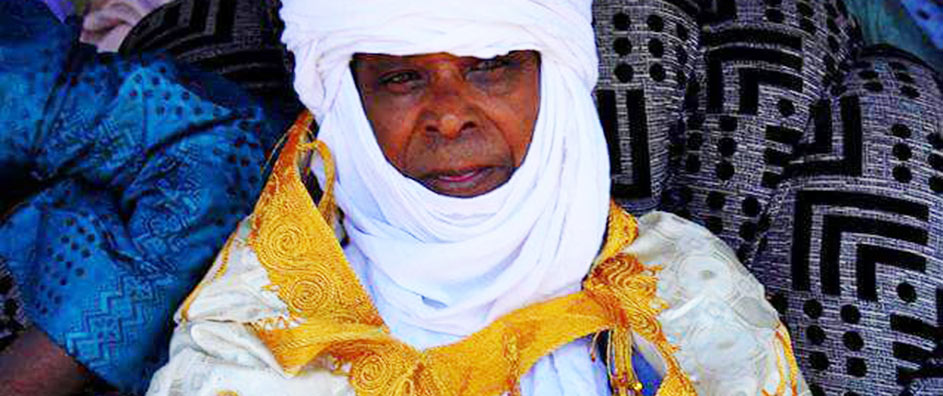Bahá’í teachings, a synthesis of spiritual and practical guidance centered around unity, principles, and social justice, provide a compelling framework for transformative leadership. An intriguing portrayal of this synthesis can be gleaned from the life of an African chief who epitomized these ideals. His rules of commitment and unity not only underscore individual accountability but also illustrate the broader implications of Bahá’í principles in governance and community building. Herein lies a discussion that delves into these teachings, weaving a narrative that underscores the importance of unity, consultation, and a commitment to the betterment of society.
Central to Bahá’í thought is the concept of unity, which serves as a cornerstone for both individual and collective growth. The African chief, as a Bahá’í leader, understood that to foster peace and collaboration, one must first embrace unity within oneself. This introspective journey necessitates a delicate balance between personal virtues and communal responsibilities. By committing to this inner unity, leaders can more effectively navigate the complexities of governance and human interaction.
Equally pertinent is the principle of consultation, which places emphasis on collective decision-making. The chief’s leadership style was characterized by an open and inclusive approach, wherein he encouraged discourse among his community members. By facilitating dialogue, he imbued a sense of ownership and collective responsibility in decisions impacting the community. The Bahá’í teachings advocate for this consultative method as a means to harmonize diverse perspectives, thereby nurturing an environment conducive to both creativity and problem-solving.
In a world fraught with division and strife, the chief’s adherence to Bahá’í principles cultivated a spirit of collaboration. The imperative of unity goes beyond mere coexistence; it mandates an active engagement in the pursuit of shared goals. This perspective can serve as a paradigm shift for contemporary leaders, highlighting the necessity of empathy and understanding in forging sustainable relationships. The chief demonstrated that, through a commitment to unity, it is possible to transcend societal divisions and foster a cohesive community.
Furthermore, the commitment to service is intrinsic to Bahá’í ideals. The African chief exemplified this principle, viewing leadership not as a position of privilege but as a profoundly spiritual obligation. His commitment to the welfare of his people was unyielding, often manifesting in direct action to address concerns and uplift the marginalized. This model of leadership serves as an inspiring testament to the transformative power of selfless service, wherein the well-being of others is prioritized above self-interest.
As one delves deeper into the ramifications of the chief’s rules of commitment and unity, the influence of education emerges as a vital element. Education, framed within Bahá’í doctrine, is not merely a vehicle for knowledge acquisition but a tool for empowerment that fosters critical thinking and moral development. The chief actively promoted educational initiatives within his community, recognizing that an informed populace is essential for sustainable development and social cohesion. A transformation in mindset occurs when education is embraced as a fundamental right, and the chief’s dedication to this principle paves the way for a more enlightened society.
This focus on education inherently intersects with gender equality, another pivotal aspect of Bahá’í teachings. The chief advocated for the equal participation of women in all spheres of life, recognizing the indispensable role that women play in the progress of society. This transformative approach towards gender roles, rooted in the belief that the empowerment of women is synonymous with the advancement of humanity, challenges traditional norms and propels communities towards holistic development.
Moreover, the chief’s leadership illuminated the importance of moral and ethical conduct. Bahá’í teachings emphasize the cultivation of virtues such as justice, honesty, and integrity, foundational qualities for effective leadership. The chief’s unwavering adherence to these virtues in both personal and public matters served as a guiding example for his community. Such moral fortitude is increasingly vital in today’s global climate, marked by ethical dilemmas and governance challenges. By modeling integrity and accountability, the African chief instilled a sense of trust and respect among his followers, fostering a culture of honesty in governance.
In exploring the rules of commitment and unity espoused by this African chief, one discerns a profound socio-political framework that transcends cultural boundaries. His leadership journey, embodied in Bahá’í principles, unfurls a narrative rich with insights that resonate universally. This framework presents an antidote to fragmentation, championing the idea that unity is not merely an aspirational ideal but a tangible reality attainable through concerted effort and unwavering commitment.
Thus, an examination of the African chief’s Bahá’í rules reveals a compelling tapestry of guidance for contemporary leadership challenges. The principles of unity, service, education, gender equality, and ethical conduct interweave to create a holistic approach toward governance that remains revelatory. The quest for a just and inclusive society begins at the level of individual transformation, as each person draws upon these teachings to enact change in their own lives and communities. Through such commitments, the legacy of the chief invites all to ponder the vital importance of unity in fostering a more harmonious and prosperous future.
